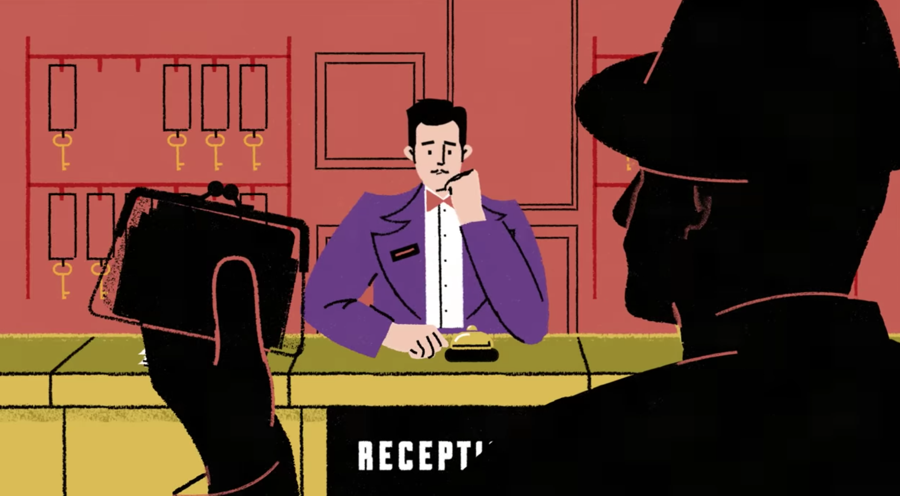Editor – Swetha TM
Imagine this scenario: you’re on duty in a hotel lobby when someone rushes up to the front desk. They’ve stumbled upon a misplaced wallet nearby but are pressed for time and can’t investigate further. The wallet reveals a key, a grocery list, around $13, and three business cards. Now, the question is, how would you react? Dive into the renowned lost wallet experiment to explore the dynamics at play in such situations.
Between 2013 and 2016, over 17,000 front desk workers worldwide faced this choice. The traditional economic model anticipates that people will usually retain a found wallet, especially if it holds a significant amount of money, as the financial motivation to do so is particularly strong. But this may not be the case, let’s see why.
In the realm of behavioural economics, researchers are constantly devising innovative experiments to understand how individuals make decisions in the complex landscape of finance. One such experiment gaining prominence is the “Lost Wallet Test.” This test goes beyond regular economic ideas and helps us understand how ethics, social norms, and smart money choices all work together in influencing decisions about money.
The Lost Wallet Test is a behavioural experiment designed to examine people’s honesty and integrity in real-life situations. Researchers intentionally “lose” wallets containing various amounts of money in public spaces and then observe how individuals who find them react. The goal is to understand the factors that drive people’s decisions when faced with an opportunity to gain financially at the expense of others.
Analysing information gathered from over 17,000 misplaced wallets in 40 countries, the lost wallet survey aimed to assess social capital, particularly focusing on inquiries related to generalized trust and morality. Surprisingly, the findings revealed that a majority of people chose to return the wallets. In a twist against traditional economic reasoning, individuals were even more inclined to do so when the wallet held a larger sum of money.
In general, 51% of individuals who received a wallet with a lesser amount of money reported it, in contrast to 40% of those handed an empty wallet. When the wallet contained a substantial sum of money, the rate of return climbed to 72%.
The experiment aimed to see how well information about lost wallets could predict how well a country is doing economically and institutionally, compared to traditional surveys about social connections. The results showed that knowing how likely people are to report a lost wallet is a good indicator of how well a country is doing. This was even better than using common survey questions about trust and social connections.
For example, when information about lost wallet reporting was added to the predictions of a country’s income per person, it made the predictions much more accurate—by more than 170%. This means it went from being 36% accurate to 62% accurate when information about lost wallets were included. In other words, lost wallet reporting was a better predictor of economic success than many of the usual survey questions about social connections.
This can have major Implications in Economics and Finance about how we understand the population and their behaviour when it comes to monetary items.
Policymakers can explore ways to create environments that encourage honesty and discourage opportunistic behaviour. It also helps in teaching individuals about the impact of their decisions on others and the broader community which contributes to the development of a more responsible and ethical financial culture. It’s not just about the people of the country, even the companies that prioritize values and ethical conduct may not only foster a positive work culture but also build trust with customers and investors.
The study’s results help the policymakers and businesses that want to figure out what motivates people to act for the good of others, rather than for their own enrichment. The results also suggest that to promote honest behaviour and/or businesses, the policymakers should make it more difficult for people to deceive themselves that they’re being honest when they are actually doing the opposite.
The Lost Wallet Test isn’t just a scientific experiment; it’s a treasure map guiding us through the intricate maze of human behaviour in the realm of economic choices. It’s a unique blend of psychology, sociology, and economics, offering a kaleidoscopic view that challenges the dusty norms of traditional economic models. In this grand exploration, we unearth valuable insights, revealing the hidden connections between finance and human morals.
As researchers continue to tinker with this intriguing test, we eagerly anticipate the evolution of its narrative. Each tweak and refinement promise to unveil more secrets, contributing to the creation of a moral compass for our economic landscape. The Lost Wallet Test isn’t just an experiment; it’s a journey towards a brighter, more ethical horizon in the complex world where finance and morality intertwine.
And the best part, once the experiment concluded, the majority of those who discovered and returned the wallet were allowed to keep the money inside. It turns out, in the world of honesty, good deeds might just be the real currency!














Leave a comment